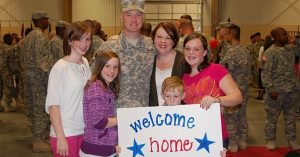Anyone who has ever held a license for their profession knows the effort it takes to obtain it and the effort it takes to keep it. Years of schooling, internships, working under a licensed professional toward your own licensure, passing a rigorous exam, paying fees associated with exams and education and paying for and attending continuing education in your profession are all par for the course. Thirty-four percent of working military spouses are in licensed occupations and have the added burden of re-licensing about every three years as a result of permanent change of station moves.
Many states have their own unique requirements for licensed occupations. For military spouses, this can be very frustrating as this is not conducive to frequent relocations. Attaining licensure from state to state costs time and money and can cause stress.
The Secretary of Defense’s 2019 report on military spouse licensing Report reported that military spouses lose between six and nine months of employment due to dealing with state licensing issues. One of the reasons for this is that requirements for competency can vary from state to state. This means that states may request the applicant to obtain certified copies of credentials, transcripts, descriptions of course work and test scores. Additionally, states may require documentation for practicum hours and certified copies of previously held licenses, all at the applicant’s expense. In addition to loss of income, there is added stress of having to possibly study for exams again and the cost associated with having to re-take exams.
The Department of Defense and the Department of Labor are continuing to work to make licensing portability for military spouses as easy as possible. While there are still improvements to be made, there are things you can do personally to make this transition a bit easier.
- First, don’t panic. Try to do something to calm yourself before moving forward. If you are in an agitated or panicked state, adding more information to an already full cup will likely not help. Take some breaths and do an activity you enjoy to put yourself in a good head space.
- Second, it is worth the time to read the Military Spouse Licensing Report which can be found here: https://www.militaryonesource.mil/data-research-and-statistics/reports/military-spouse-licensure-reports.
- Third, on the U.S. Department of Labor website you can find military spouse license recognition information at https://www.veterans.gov/milspouses/#licensefinder. The map on this website will show you what each state does for military spouses when it comes to license portability. For some professions, there is complete license portability and that information can be found at this website as well.
The DoD and DoL recognize that licensing portability for military spouses is an ongoing concern and are taking steps to make this aspect of military life easier. While many strides have been made, we still have work to do. Taking the time to care for yourself and educate yourself can help to alleviate some of the frustrations associated with this. Also, don’t forget that the Spouse Education and Career Opportunities program is available to help you with your career and education related questions.




